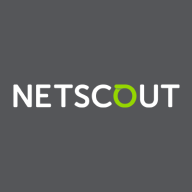

Arbor DDoS and Reblaze compete in the cybersecurity field, particularly in DDoS protection. Based on features, Reblaze's emphasis on cloud integration and ease of use seems to give it the upper hand in flexibility and user experience.
Features: Arbor DDoS offers predefined filters, real-time network visualization, and comprehensive reporting options, making it ideal for ISP infrastructures with detailed threat intelligence. Reblaze, on the other hand, provides flexible, cloud-based security with robust real-time monitoring and web application firewall capabilities, prioritizing ease of use and cloud integration.
Room for Improvement: Arbor DDoS should focus on improving scalability, management interface, and cost-effectiveness, addressing high pricing concerns and enhancing automatic mitigation to protect legitimate traffic. Reblaze needs to advance its bot management capabilities, automate reporting processes, and ensure competitive pricing strategies.
Ease of Deployment and Customer Service: Arbor DDoS supports on-premises and hybrid cloud deployments but is less versatile across clouds compared to Reblaze. Reblaze excels with integration across private and public clouds. While Arbor's technical support is competent, Reblaze offers responsive support with potential for further process enhancements.
Pricing and ROI: Arbor DDoS is a higher-cost solution justified by its extensive features and strong ROI, ideal for large-scale deployments. Reblaze provides cost-effective pricing appealing to organizations looking for scalable cloud-specific solutions, making it favorable for smaller budgets and businesses.
Support for Arbor DDoS deserves a rating of 10 because when there is a problem with implementation, the people I work with are the best.
The technical support team is very effective in resolving issues.
There is room for improvement; the first line of support could be improved because sometimes we get limited answers from technical documentation, and we are often forwarded to the second line, where the answer is clearer and specific.
This would enhance the knowledge about scalability options available for Arbor DDoS, making it more accessible and useful for users.
They need to purchase boxes monthly to expand their bandwidths, and these new boxes can be added to the installed base very easily.
I find Arbor DDoS to be very scalable.
For stability, I would rate it a 10.
Arbor DDoS is very stable.
I would like to see a roadmap for one or two years, and it is tough to predict what will happen in that timeframe without a clearer description.
I would like to see an option to decrypt the traffic with Arbor DDoS, as some clients are interested in this, particularly for application layer attacks on port 443.
Enhancing the handshakes between Arbor DDoS and third-party solutions is essential for obtaining better and real-time data that supports any organization’s support team effectively.
From our sales department, they discuss that prices are very high.
For some customers, the cost is expensive, but for enterprises looking to protect their services, it is affordable.
That is an attack over 10 gigabit per second, and if an attack enters the telecommunication network, that will be a disaster for their customer, their services, and so on.
We have many updates for the library of different attacks, and they have artificial intelligence that automatically learns the process during different attacks.
The main benefits Arbor DDoS provides to users include stopping DDoS attacks, which is the biggest nightmare for all customers.

Arbor DDoS provides effective mitigation against DDoS attacks with a user-friendly interface, integrating cloud and on-premise solutions for real-time traffic control and reporting. It supports large traffic volumes without latency, making it ideal for protecting online infrastructure.
Known for its intuitive GUI and rapid response, Arbor DDoS defends against complex DDoS threats using AI-driven anomaly detection and traffic categorization. It offers packet capture, robust reporting, and deployment flexibility, helping users maintain network stability and performance. While improvements in auto-mitigation, interface modernization, and scalability are needed, its hybrid protection approach efficiently secures networks for service providers and enterprises.
What are the key features of Arbor DDoS?Internet Service Providers and managed service providers utilize Arbor DDoS to secure network infrastructure and service availability. It's implemented in government and finance sectors for safeguarding customer websites and managing server traffic thresholds. Organizations deploy Arbor DDoS both on-premise and via cloud for extensive network protection.
Reblaze provides real-time monitoring, reporting, and botnet protections, enhancing security management with agile customization. Its intuitive dashboard supports efficient decision-making, while flexible rules and geo-blocking ensure security across geographies.
Reblaze is primarily deployed for web application firewall (WAF), DDoS prevention, and bot management, effectively defending against Layer 7 DDoS, phishing, SQL injections, cross-site scripting, and unwanted IP traffic. Supporting both public and private cloud deployments, including Amazon-hosted applications, Reblaze filters malicious activities to safeguard internet businesses. Users appreciate its comprehensive security approach, particularly for mobile app protection through its API and advanced filtering against script injections. Room for improvement includes change management, automation, reporting alerts, session management, and more granular WAF features. Adjustments in pricing and enhancements for bot management and bad IP address databases are sought after.
What are Reblaze's Most Important Features?In finance, Reblaze addresses the stringent demands of data protection. E-commerce platforms benefit from its robust perimeter defenses against typical threats. Healthcare industries utilize its capabilities to secure sensitive patient data, leveraging both real-time monitoring and responsive alert systems to maintain compliance and integrity.
We monitor all Distributed Denial-of-Service (DDoS) Protection reviews to prevent fraudulent reviews and keep review quality high. We do not post reviews by company employees or direct competitors. We validate each review for authenticity via cross-reference with LinkedIn, and personal follow-up with the reviewer when necessary.